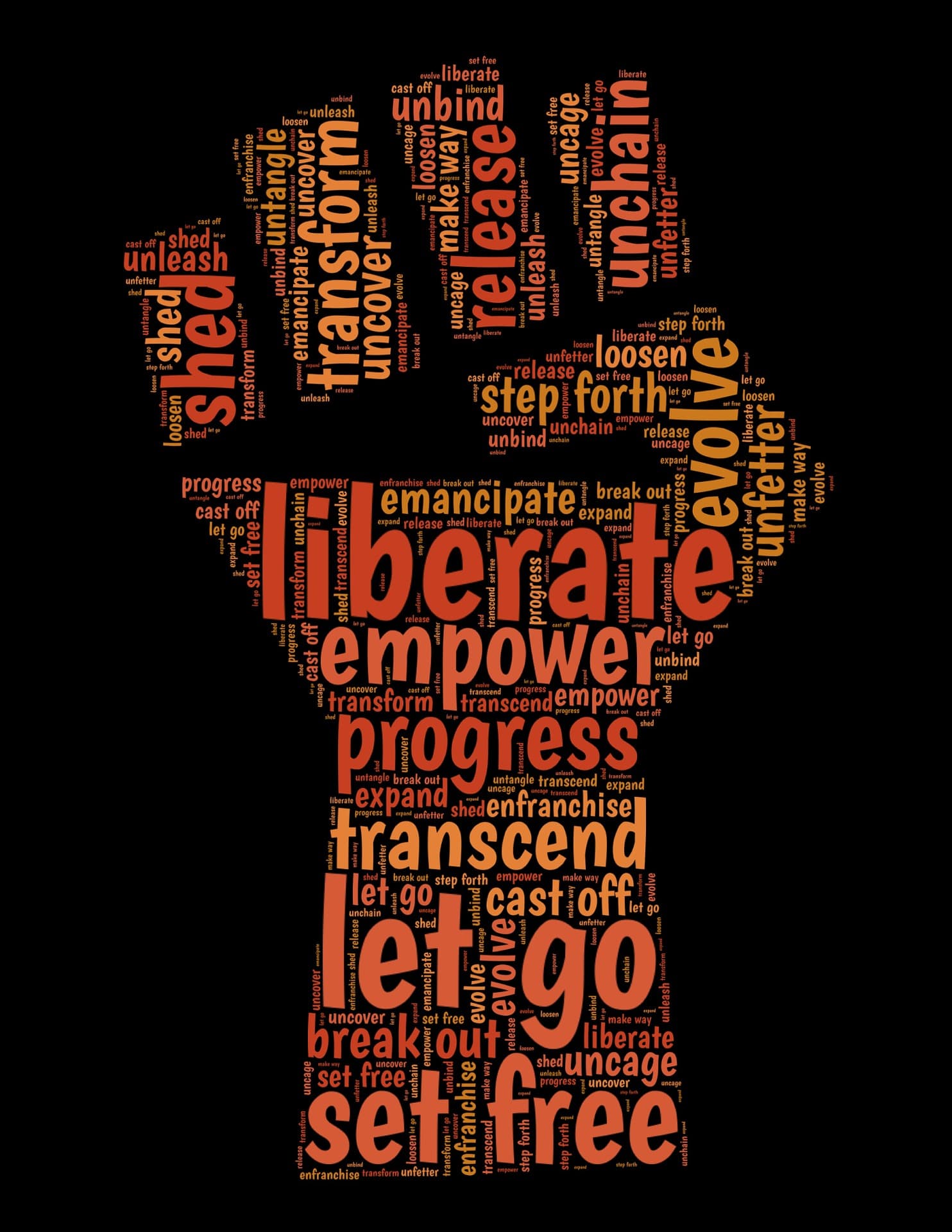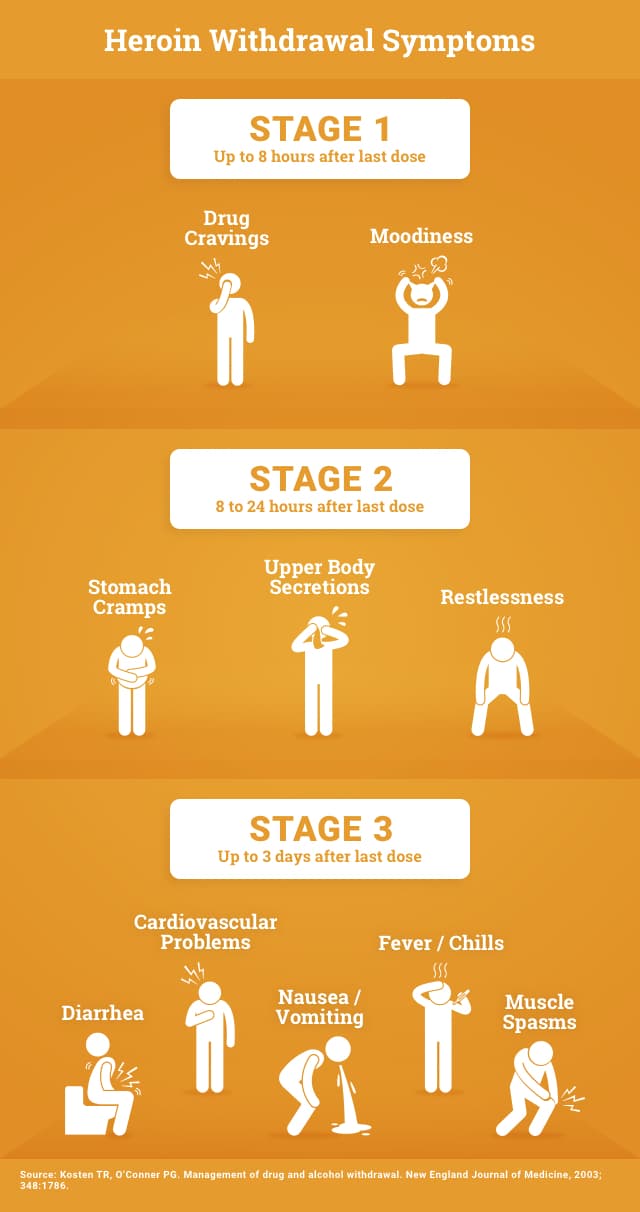How to Get off Heroin
Heroin addiction is an incredibly complex disorder that involves both psychological and physical dependency on the drug and has significant negative consequences.1

While many who struggle with heroin addiction may wish to quit, heroin seems to be somewhat unique from other drugs – such as marijuana or cocaine – as it can pose a particular challenge to successfully getting and staying clean.
The rates for relapse with heroin remain incredibly high.
Some studies have even reported relapse rates as high as 70% for those having completed methadone maintenance treatment.2,3
It is not uncommon for individuals trying to quit to hold back and hide a couple of empty baggies or a needle somewhere – “just in case.” By doing this, however, you are actually enabling yourself to relapse again in the future.
One factor that may be linked with high heroin relapse is exposure to heroin use-related cues.
If you’re attempting to quit, you’re encouraged to get rid of all drug paraphernalia that may be laying around. That includes: needles, spoons, cotton balls, aluminum foil strips, tie bands, balloons, empty baggies, water bottles, straws, lighters or straws.4

Heroin Addiction and Withdrawal
As noted above, heroin addiction is complex and involves interactions between both psychological factors and physical factors. Signs of physical dependence upon the drug can be seen within even one to two weeks of regular heroin use.2,3
The specific symptoms and severity of withdrawal vary widely and greatly depend on the user’s history with heroin and other recreational drugs.
If you are using heroin on a regular basis and physical dependence has manifested, tolerance to the drug’s effects has likely already emerged. As tolerance builds, you will begin to need greater and greater doses of the drug in order to achieve the feeling of being high.5
Can You Die from Heroin Withdrawal?
While withdrawal from heroin is intensely uncomfortable, natural heroin withdrawal is not life-threatening. In most instances, early withdrawal symptoms are noted within 10 to 12 hours of the last administration of the drug.

Diagnosis of heroin withdrawal may occur at a physical examination.6 The physician will often use a urine or blood test to confirm heroin use.
Other blood and liver function tests may also be ordered to rule out any additional medical conditions that may complicate the withdrawal process.
The comfort level of your withdrawal process, however, will vary – depending on whether you choose to go it alone, cold turkey, or whether you choose to seek outside help that can ease your experience.
Quitting Heroin Alone, Cold Turkey
Once you have decided to get off heroin, your body enters a period of readjustment as it readjusts to functioning on its own again without the drug. These symptoms can be quite unpleasant, especially if you are quitting heroin alone – and they are often accompanied by very intense cravings for the drug. While not inherently dangerous to experience, these withdrawal symptoms may weaken one’s resolve to quit, as continued drug use would ease or postpone their arrival. Risk of immediate relapse is thus potentially increased.
Some common early withdrawal symptoms6, which may emerge 10 to 24 hours after the last administration of the drug, include:
- Intense cravings to use heroin again.
- Feelings of depression.
- Loss of interest in food.
- Lack of energy and motivation to do much of anything.
- Anxiety.
- Sweating.
- Increased tearing.
- Runny nose.
- Agitation.
- Yawning.
- Insomnia.
Some common symptoms of heroin withdrawal that occur later on include:
- Nausea.
- Vomiting.
- Abdominal cramping.
- Diarrhea.
- Goose bumps.
- Restless leg syndrome.
- Muscle aches and body discomfort.
- Dilated pupils.
- Elevated heart rate.
- High blood pressure.
Quitting Heroin with Outside Help
There are a number of different treatment options available to help someone who is attempting to recover from a heroin addiction. Moreover, these alternatives have been shown to be much more effective and comfortable than attempting to quit alone, cold turkey.7
As heroin dependency is a particularly difficult condition to recover from, many of the treatment options will be offered on an inpatient or residential basis – providing an immersive environment for focused recovery efforts.
Heroin Rehabilitation Programs
Rehab programs treat both the psychological and physical effects of heroin. This treatment method often incorporates a number of components, including:
- Heroin detox – to address physical addiction.
- Individual and/or group counseling.
- Behavioral therapy.
- Relapse prevention skill training.
- Addiction education.
- Support group participation.
- Dual diagnosis treatment and care for additional medical conditions you may have.
- Aftercare – to prepare the individual for life after heroin rehab.
Often these rehabilitation programs may also use pharmaceutical drug treatment to help ease the individual off of heroin. Some programs occur in hospitals or recovery centers and offer intensive, around-the-clock overnight care (“inpatient” programs). Some programs let you attend from home (“outpatient” programs) and still other programs offer more luxurious residential housing to stay in during the treatment process.
Medically-assisted / Pharmaceutical Treatment
For individuals who have had repeated unsuccessful attempts in quitting heroin, drug maintenance therapy may be considered. This type of intervention is designed to provide the individual with some variety of medication-assisted support in order to keep them from continued heroin use.
Opioid agonists help reduce uncomfortable symptoms – such as omiting and diarrhea –that come with heroin withdrawal.
One type of medication that is most often utilized is a class of drug known as “opioid agonists.” These drugs – which include methadone and buprenorphine – work by targeting the same opioid receptors that heroin does, although they are somewhat safer than heroin.6,7
Cognitive-behavioral Therapy
Cognitive-behavioral therapy also provides assistance on your road to heroin addiction recovery. Counseling sessions aim to reset your drug use expectations and behaviors, while further equipping you with better coping skills to manage life’s stresses. Used with medications, it can be highly effective.7
Support Groups
There are a wide variety of support groups available, such as Narcotics Anonymous and SMART Recovery. For some people, these groups can be quite helpful in providing supplemental and ongoing support during and after the treatment process.
Relapse into Heroin Addiction
Recovery from heroin addiction carries with it a very high risk for future relapse. There has been some suggestion that a number of life situations and other psychological factors place an individual at an augmented risk for relapse with heroin.5,6
Common factors include:
- Unhelpful emotional states, such as depression or anxiety.
- No social support system.
- Relational troubles with family and friends.
- Stress.
- Employment and educational difficulties.
- Reduced commitment to remaining abstinent.
- Limited coping skills.
The Key to Staying off Heroin and Avoiding Relapse
Though challenging, it is possible to detox from heroin and string together a few days of sobriety. The real challenge lies in achieving sobriety in the long-term.
Regardless of whether or not drug therapy is used for ongoing recovery maintenance, the key to being successful in recovery is to remain actively involved in treatment.
Individuals with past heroin addiction may lack skills in the ability to cope with life stressors, thereby leading to the potential for heroin relapse.5
By remaining actively involved in treatment, you will gain knowledge in relapse prevention and how to plan for the eventual stressful life event, in order to reduce your risk for resorting to getting high.
What does it mean to be actively involved in your treatment?
#1 – Follow through with your recovery plan, whether that includes drug therapy as prescribed or making regular visits to a medical professional, to counseling sessions or to a rehab treatment center.
#2 – Get rid of drug paraphernalia you are still holding onto: needles, tie bands, balloons, lighters, etc. – anything that reminds you of your heroin use.
#3 – Stay connected to a supportive social network that will help you stand by your goals.
Those who take this active role in their own recovery, by putting a positive plan into action after they are fully detoxed, are much more likely to succeed in the long run.
Let’s verify your coverage for treatment at an American Addiction Centers location. Your information is always confidential.
Learn More About Quitting Heroin and Finding Help
If you are ready to seek the help you or a loved one needs to get off heroin, call to speak with one of our recovery advisors who can walk you through your options and possible next steps towards recovery.

Sources
- Li CS, Sinha R. Inhibitory control and emotional stress regulation: Neuroimaging evidence for frontal-limbic dysfunction in psycho-stimulant addiction. Neurosci Biobehav Rev 2008;32:581-597.
- Preston KI, Umbricht A, Epstein DH. Methadone dose increase and abstinence reinforcement for treatment of continued heroin use during methadone maintenance. Arch Gen Psychiatry 2000;57:395-404.
- Farrell M, Ward J, Mattick R, Hall W, Stimson GV, des Jarlaid D, Gossop M, Strang J. Methadone maintenance treatment in opiate dependence: A Review. British Med J 1994;309:997-1001.
- Li Q, Li W, Wang H, Wang Y, Zhang Y, Zhu J et al. Predicting subsequent relapse by drug-related cue-induced brain activation in heroin addiction: An event-related functional magnetic resonance imaging study. Addiction Biology 2015;20(5):968-978.
- Are relapse risk factors different in offender populations? How should drug abuse treatment deal with these risk factors? National Institute on Drug Abuse.
- Opiate Withdrawal. US National Library of Medicine Medline Plus.
- Goldstein A. Heroin addiction: Neurobiology, pharmacology, and policy. J Psychoactive Drugs 1991;23(2):123-133.
Heroin Rehabilitation Directory
Select a state to learn more about your treatment options.- Alabama
- Alaska
- Arizona
- Arkansas
- California
- Colorado
- Connecticut
- Delaware
- District Of Columbia
- Florida
- Georgia
- Hawaii
- Idaho
- Illinois
- Indiana
- Iowa
- Kansas
- Kentucky
- Louisiana
- Maine
- Maryland
- Massachusetts
- Michigan
- Minnesota
- Mississippi
- Missouri
- Montana
- Nebraska
- Nevada
- New Hampshire
- New Jersey
- New Mexico
- New York
- North Carolina
- North Dakota
- Ohio
- Oklahoma
- Oregon
- Pennsylvania
- Rhode Island
- South Carolina
- South Dakota
- Tennessee
- Texas
- Utah
- Vermont
- Virginia
- Washington
- West Virginia
- Wisconsin
- Wyoming
Help for Heroin Addiction
Do you know someone suffering from heroin addiction? Help is available. To find out more, please choose the selection that applies to you or the person suffering from addiction:
Fill out the form below to be contacted.
Repair the damage and start fresh today!


